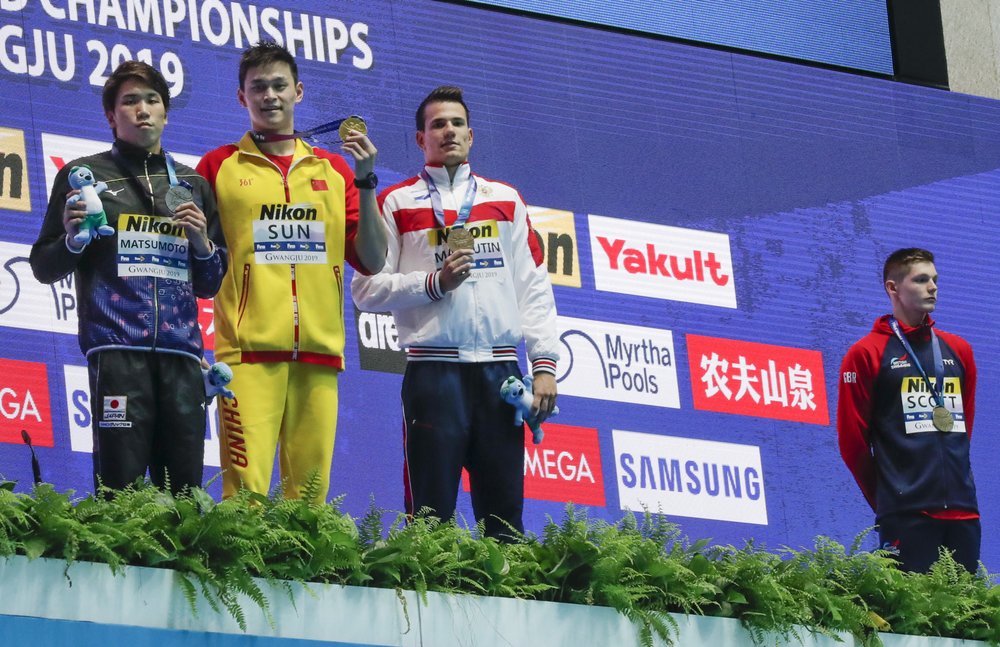Chinese swimmer Sun granted public trial for doping hearing

The open hearing by the Court of Arbitration for Sport will probably be in Switzerland but is “unlikely to be before the end of October,” the court said on Tuesday.
Sun is following another three-time Olympic swimming champion, Michelle Smith de Bruin of Ireland, as the only athletes opting not to have a closed-door hearing in the sports court’s 35-year history. She lost her case in 1999.
His lawyers said last month that Sun “objects to being tried by the Australian press.”
Details of evidence in the previously confidential court process were published on the eve of the world championships held last month in South Korea.
Swimmers from Australia, Britain, and the United States objected to Sun being allowed to compete in Gwangju while the appeal case was pending. After Sun won the 200 and 400 meters freestyle events, medalists from Australia and Britain made silent protests at the podium.
China’s first Olympic swimming champion won two gold medals at the 2012 London Olympics and one in Rio de Janeiro four years later. He could be banned from the Tokyo Games next year because of incidents at his home in China last September.
A collection team sent to take blood and urine sample failed to complete its work in an escalating late-night dispute.
Sun disputed an official’s credentials, and a vial of blood handed over to his entourage was destroyed with a hammer.
WADA challenged swim body FINA’s verdict in January that a warning was enough for Sun, who served a three-month ban in 2014 for a positive test.
The first case involving a substance then classed as a stimulant was conducted in relative secrecy in China and only later announced by FINA.
The CAS hearing should be the first in public since the European Court of Human Rights last year said athletes should have more rights to open the sports court to scrutiny.
In the only previous public trial, Smith de Bruin challenged a four-year ban imposed by FINA in 1998 two years after the Atlanta Olympics for allegedly tampering with a urine sample by adding alcohol.
A panel of three CAS judges heard the case over two days in May 1999 in its home city Lausanne, Switzerland, and upheld the original verdict.
On Tuesday, CAS confirmed reports it hoped to schedule Sun’s hearing in September, until “unexpected personal circumstances” forced a delay by several weeks.